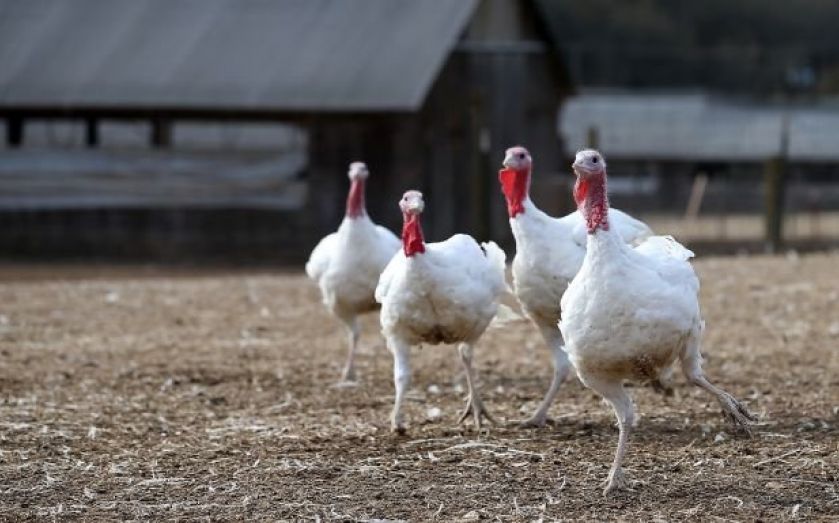| Updated:
A turkey’s not just for Thanksgiving – it could save your life

While we gobble up turkeys in celebration of Thanksgiving, perhaps we should also offer a toast to the festive birds themselves.
Not only do they bring our stomachs happiness year after year – they also contain a unique antibiotic that can help humans fend of disease.
A “good” bacteria known as Strain 115 is found inside turkeys, and this produces an antibiotic called MP1, which can kill off disease-causing bacteria.
In fact, the antibiotic is so strong that it can kill off half of all infectious bacteria, according to research by scientists from Brigham Young University in Utah. This means it can provide protection against problems ranging from sore throats and minor stomach upsets to more serious gastrointestinal disorders.
Joel Griffitts, microbiologist and lead researcher in the study, explained that the antibiotic is produced by the birds to keep themselves healthy, but that this has beneficial effects for humans, too. "The good bacteria we're studying has been keeping turkey farms healthy for years and it has the potential to keep humans healthy as well,” he said.
The antibiotic has a highly complex structure and is currently not widely used for medical purposes, but Griffitts and his team could change this with their discovery of exactly how the bacteria produce the antibiotic.
They used techniques called mass spectrometry and nuclear magnetic resonance spectroscopy to look at how Strain 115 manages to make the bacteria without killing itself, and the mechanism turned out to be surprisingly simple, shedding a positive light on the possibility of using the antibiotic on a wider scale in the future.
How it works? An engine inside of Strain 115, a compact DNA molecule also known as a plasmid, produces both the killer antibiotic and a self-protecting agent. "It's sort of like outfitting a car with special tires that protect against unusual road hazards," Griffitts said.
The findings are published in the journal Bacteriology.